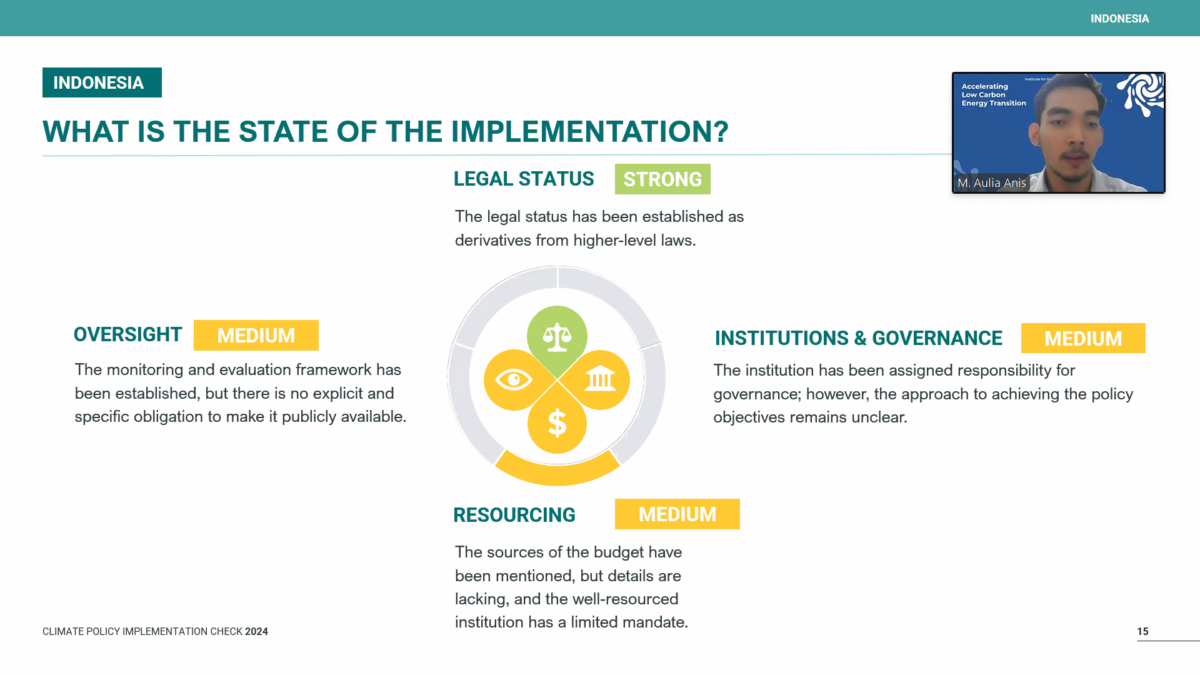New York, September 24, 2024 – The energy transition has become a crucial global agenda as an effort to mitigate climate change and prevent the world from greater climate change impacts if the 1.5-degree temperature increase limit (Paris Agreement) is exceeded.
Indonesia as a signatory to the Paris Agreement has set this commitment through Law No. 16/2016. To achieve this climate commitment target, various regulations and policy frameworks have been created, one of which is in the financial sector through the Regulation of the Minister of Finance No. 103/2023. This regulation serves as a practical guideline for the energy transition financing platform, as well as a legal basis for national fiscal support and other sources of financing for energy transition savings.
Muhammad Aulia Anis, Just Transition Program Officer, Institute for Essential Services Reform (IESR), in a webinar entitled Driving Climate Implementation and Financing the Energy Transition in the G20 stated that the existence of this regulation is expected to mobilize funding for Indonesia’s energy transition.
“Indonesia needs 30-40 billion USD annually to achieve renewable energy targets in 2025, 2050 and 2060. There is still a large gap in funding needs that must be met by the private sector,” he said.
Aulia added that the assessment conducted by IESR on the fiscal policy infrastructure for the energy transition in Indonesia, including Institution & Governance, Oversight, and Resources, is in the medium category. This is because for these three categories, regulations or guidelines have been available, but at the implementation stage there are still several notes and obstacles. Meanwhile, the Legal Status category in question is strong.
IESR pressure for harmonization of regulations and emission reduction targets between high institutions in Indonesia is also important to do in order to accelerate the adoption of renewable energy and achieve energy transition targets. With the same emission reduction and renewable energy use targets, derivative regulations will emerge that support the achievement of these targets. This process will also eliminate common challenges such as Local Content Requirement (LCR) issue in renewable energy technology, coal DMO prices, and energy subsidies.

